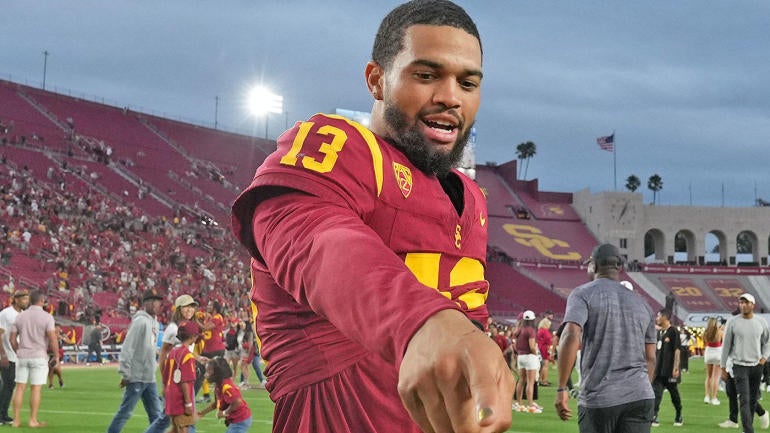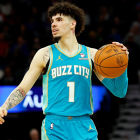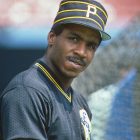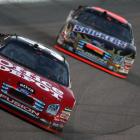
I've talked a lot about Caleb Williams over the first half of the college football season because he's been the No. 1 overall prospect in the 2024 NFL Draft class since the moment the 2023 NFL Draft ended in May.
As a freshman in 2021, he replaced Spencer Rattler when both were at Oklahoma and finished that year completing 64.5% of his throws with 21 touchdowns and four interceptions. He transferred to USC before 2022 and improved in all areas (66.7 completion percentage, 42 TDs, five INTs). And through seven games this season, Williams completion percentage is a career-best 70.0, with 23 TDs and four INTs.
It's worth noting, of course, that all four of those interceptions have come in the last three games, with Williams pulling off the improbable first-half hat trick against Notre Dame last Saturday night in what had to be the worst effort of his career at any level. And it's that beatdown in South Bend that I want to focus on. Because prior to that, there were very few flaws in Williams' game, at least any that had shown themselves over the first month-and-a-half of the season.
You might point out that Arizona gave USC just about all it could handle -- and I wouldn't disagree -- but after a slow start in the first half, Williams did what Williams does: put the team on his back in the second half and into overtime and literally dragged the Trojans into the end zone for the win. And, oh by the way, the play before the game-winner? It was this mind-melting throw. Yeah, it was incomplete but having the vision -- never mind the athleticism and arm strength -- to put the ball where only his receiver could make a play on the ball is special.
And look, I know a lot of the pre-draft process can be trying to talk yourself into guys who haven't yet lived up to expectations; trying to squint your way into seeing the next Josh Allen, a player with freakish athletic traits who is raw or at a small school or just needs to be coached up. There are no such concerns with Williams, who checks the "freakish athletic traits" box in a bright red Sharpie, and who consistently makes those around him a lot better.
It's why Rick Spielman, the longtime former Vikings general manager who now co-hosts the With the First Pick Podcast with me, said recently that he'd take Williams No. 1 overall in every draft going back to -- and including 1998, when Peyton Manning was the top pick. The only exception was 2012 and Andrew Luck. That's it. Over 25 years of drafts. (And yes, I know, I misspelled "Peyton" in the tweet below.)
How good is Caleb Williams? Asked @spielman_rick on the @NFLDraftCBS pod who he'd take first, Caleb or...
— ryan wilson (@ryanwilsonCBS) October 4, 2023
- Bryce Young
- Trevor Lawrence
- Joe Burrow
- Andrew Luck
- Payton Manning
- John Elway
Rick would take exactly one of the QBs above over Caleb. pic.twitter.com/776kuylIDY
So what happened against Notre Dame? I rewatched the game and ... I actually felt better about Williams than I did before the game.
(Rick and I talked about it on the podcast, and you can watch that segment here.
That sounds ludicrous -- I get it -- but here's the thing: All three interceptions came in the first half, and all three were terrible. But you could also see what Williams was trying to do and a confluence of events doomed him in the moment, whether it was poor blocking, imprecise route-running or, ultimately, bad decisions by the quarterback.
All that said, Williams was still 7 of 8 in the first quarter, the only incompletion being a completion to the other team. He fell to 6 of 14 in the second quarter, threw two more picks, and was blitzed on a third of his dropbacks. He was pressing and it manifested itself in some truly poor choices. The other issue is one that has been a recurring theme this season but has been masked by how well he has played: Williams will too often pass up the easy completion in favor of hero ball -- it could be a deep sideline ball when his receiver is well covered, it could be passing up the first two reads in his progression to try to hit a big play out of structure, it could be buying time in the pocket so he can win with his legs with a long scramble.
But it's hard to get upset with this approach when you can turn on any game, and Williams is consistently doing all those things, and usually with great frequency. Against Notre Dame, that was not the case ... at least not in the first 30 minutes.
My biggest takeaway, however, was the final 30 minutes, when the game had all but been decided. After going 13 of 22 in the first half, Williams finished 10 of 15 with a touchdown and no turnovers. And these weren't a bunch of "We're getting our teeth kicked in so let's throw a bunch of screens and get out of here" throws, either. These were NFL-anticipation throws, right on his target's face against a defense that was still getting after it.
Rick echoed similar sentiments on the podcast.
This sounds wild, I know, but I actually felt better about Caleb Williams after going back and watching his 3-interception performance against Notre Dame. @spielman_rick and I talked about what it meant for Williams' evaluation on the @NFLDraftCBS pod. pic.twitter.com/iYLrjn4IQS
— ryan wilson (@ryanwilsonCBS) October 19, 2023
"The three interceptions in the first half I think were just poor decisions on him," Spielman said this week. "Those are the type of throws that will be interceptions in the NFL. ... He was just putting the ball up.
"You can't do that because it's going to create turnovers, especially since Notre Dame has a good football team. But what I was impressed with the most … is he came back in the second half and played lights out, in my opinion. He made NFL throws, he made much better decisions.
"He didn't, even though they were down, he wasn't putting the ball in harm's way to create even more and trying to do things that weren't there. He got through his progressions. He actually looked like a legit – not that he's not legit – but what he's going to have to do in the NFL in the second half and he didn't put his head in the dirt. He didn't go in the dumper.
"He came out and almost wanted to prove that, hey, that was an anomaly in the first half and the way he came out and played in the second half. I was very impressed with the way he responded after a poor first half."
Put another way: sometimes you want to see how a player responds to adversity, and with Williams, there was a lot to like under some trying circumstances. But this ain't over; USC's schedule is tough; they face Utah on Saturday, and after traveling to Cal, they'll have Washington and Oregon and UCLA in back-to-back-to-back Pac-12 contests. Ideally, Williams will help himself going forward by playing more within the offense, and lessening the hero ball (even though he has come as close to perfecting it as anyone in recent memory). Easier said than done, I know, but that can either be a lesson he learns now or a stark reality he'll have to face in the NFL next season.





















